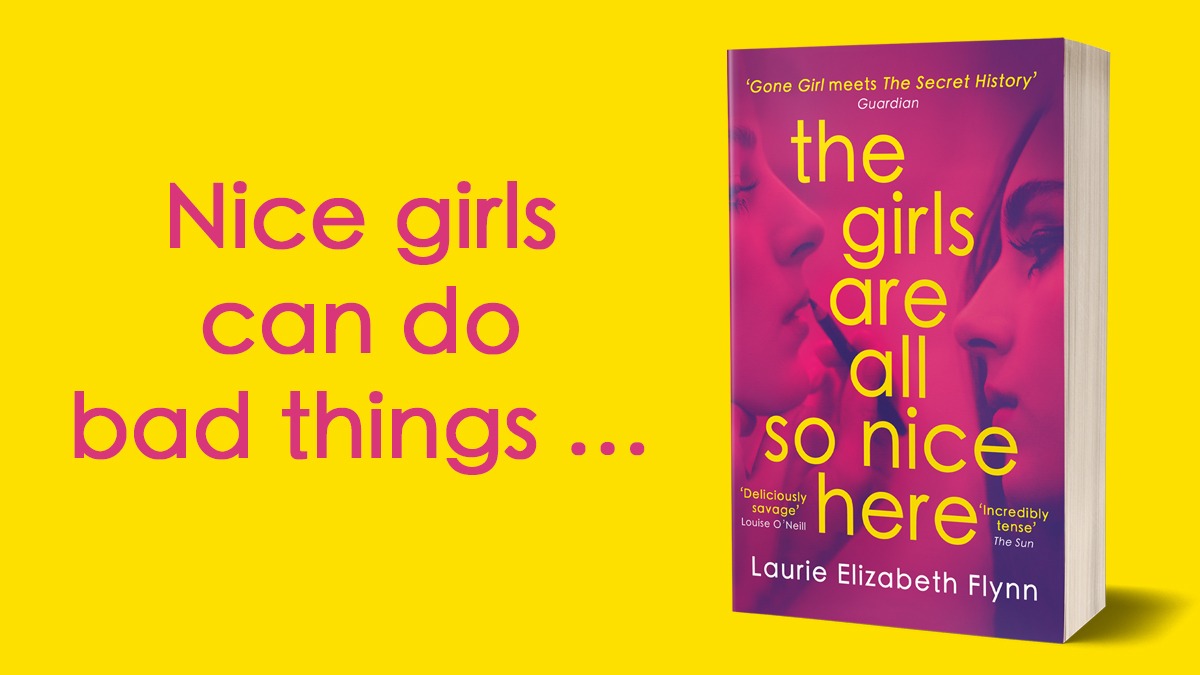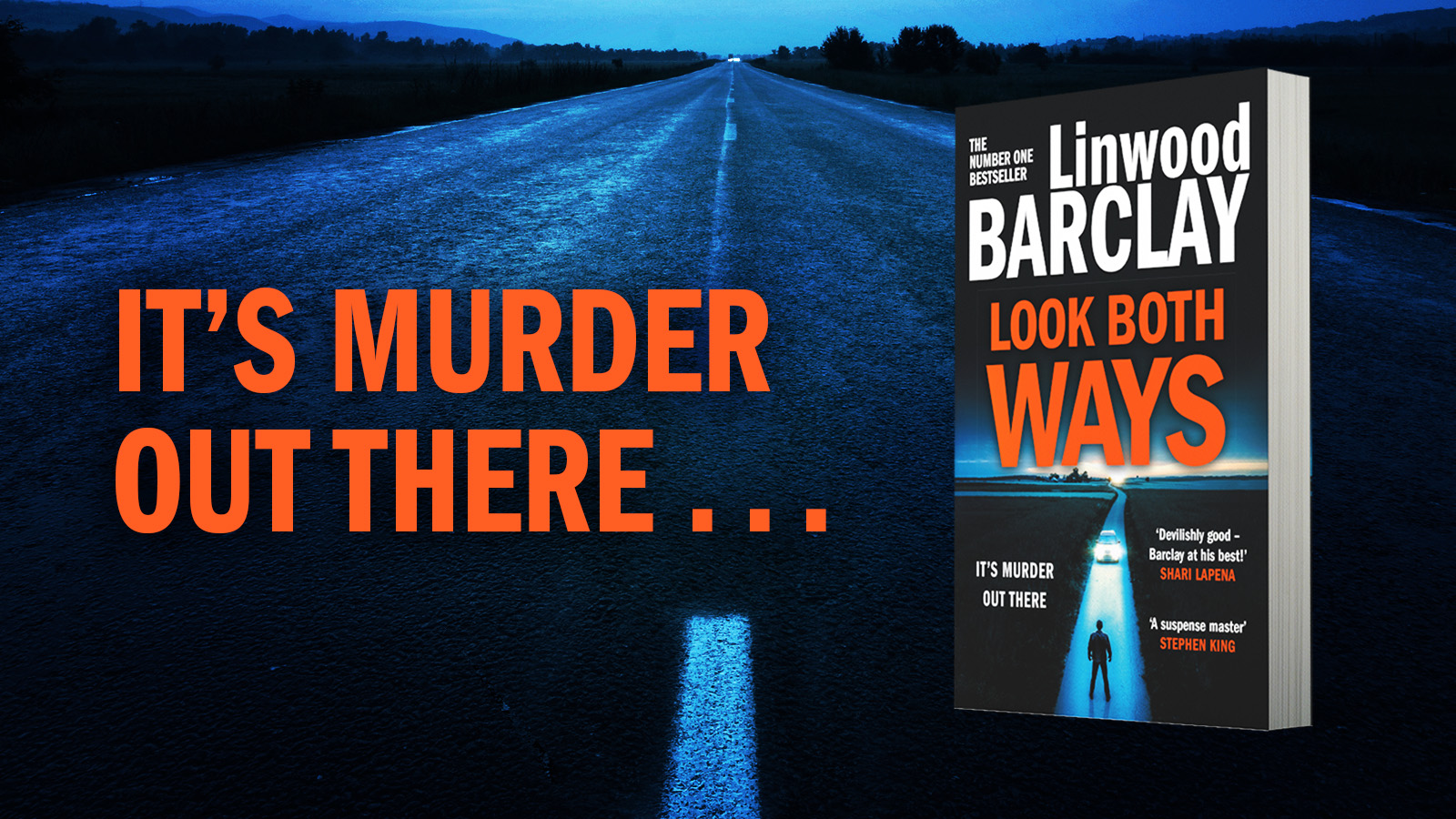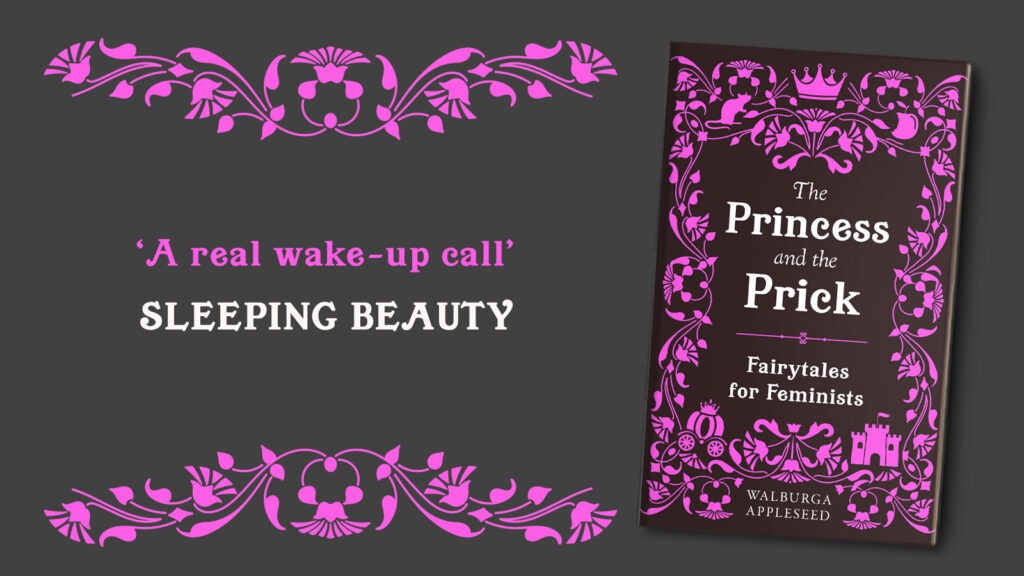The Girls Are All so Nice Here, the compelling new dark thriller by Laurie Elizabeth Flynn, is out now in paperback format! To celebrate, Laurie is here to discuss the idea of reinvention in her novel and the inspiration behind it.
The Girls Aren’t Nice At All
But who defines nice, anyway?
Most of us have been there. Awkward and insecure in our own skin, desperately wishing there was something about ourselves that we could change. We latch onto the promise of self-improvement, easily picking apart our flaws. Rarely are we given a fresh slate like the one we receive when college starts—it’s the ultimate possibility of reinvention, and with it comes the pressure to take advantage of a deliciously blank canvas.
In my novel The Girls Are All So Nice Here, Ambrosia Wellington’s high school experience was unexceptional, but not painful, either—until her boyfriend cheats on her, leaving her humiliated and blindsided. Those emotions are still raw when she starts college at Wesleyan. She’s determined to both stand out, and perfect the art of carelessness, never letting anyone mean enough to give them the power to hurt her. Amb intersects with the charismatic, cruel Sloane “Sully” Sullivan at the absolute worst time: Amb is seeking validation, and Sully needs an outlet for her boredom. It’s Amb’s most vulnerable moment, searching for an opportunity to stand out, and she does—in the worst possible way.
While the actions that follow might not be typical for most people’s college experience, Amb’s quest to reinvent herself is intensely relatable. Reinvention is a sexy concept in its simplicity, its insinuation that slipping into a different version of yourself is easy. My own high school years were fraught with insecurity: I hated how I looked, with my braces and overbite, and analysed the awkwardness of my social interactions after they happened. A handful of months before high school graduation, the braces were finally off and the overbite corrected, and I saw college as the ultimate new beginning, at the best possible time. I could morph into someone cool, which I was positive I had never been before. I could even get noticed by boys—my dating experience, until then, was virtually non-existent.
But what I found in college was that just because the setting was new, didn’t mean my old insecurities would suddenly disappear. In fact, they were amplified. On a huge campus, I felt anonymous and invisible. It wasn’t until I leaned into my tendencies I had previously seen as “uncool”—my obsession with books and movies, my love of writing—that I found my “people.” And I realized that popularity wasn’t the same as it had been in high school, with one clique of popular girls composed of a leader and several followers. It had a new definition. It was less about being known and more about knowing myself. It was about making connections with different people and challenging myself with new ideas.
As she’s increasingly caught up in Sully’s orbit, Amb has a choice. She can back away and gravitate toward her roommate Flora, the consummate good friend, or she can lean into Sully’s dark proclivities, mimicking the girl who has mastered nonchalance. The more she believes she isn’t naturally sweet and kind like Flora, and the more magnetic and daring Sully becomes in her extreme actions, Amb stumbles into unchartered dark territory, and the consequences are devastating. Only in the aftermath does she realize the price she paid for her personality overhaul, and who she became in the process—a shadow of Sully, her conscience muted. In a moment of retrospection, she muses: “I was the snake that swallowed Flora, and Sully unhinged her jaw to swallow me. Maybe everything would have ended very differently if we had talked, but we didn’t exist in a world where our envy was allowed to have a voice.”
Perhaps this is the ugly underbelly of reinvention, the part nobody wants to talk about. It comes with a cost, and sometimes the price to pay is higher than we can afford. Amb’s descent into darkness is chilling, but what makes it so unsettling is, I believe, its relatability. It could happen to anyone.
The Girls are all so Nice Here is out now in paperback edition. Buy your copy from your local bookshop, bookshop.org, Hive, Waterstones, and Amazon.





